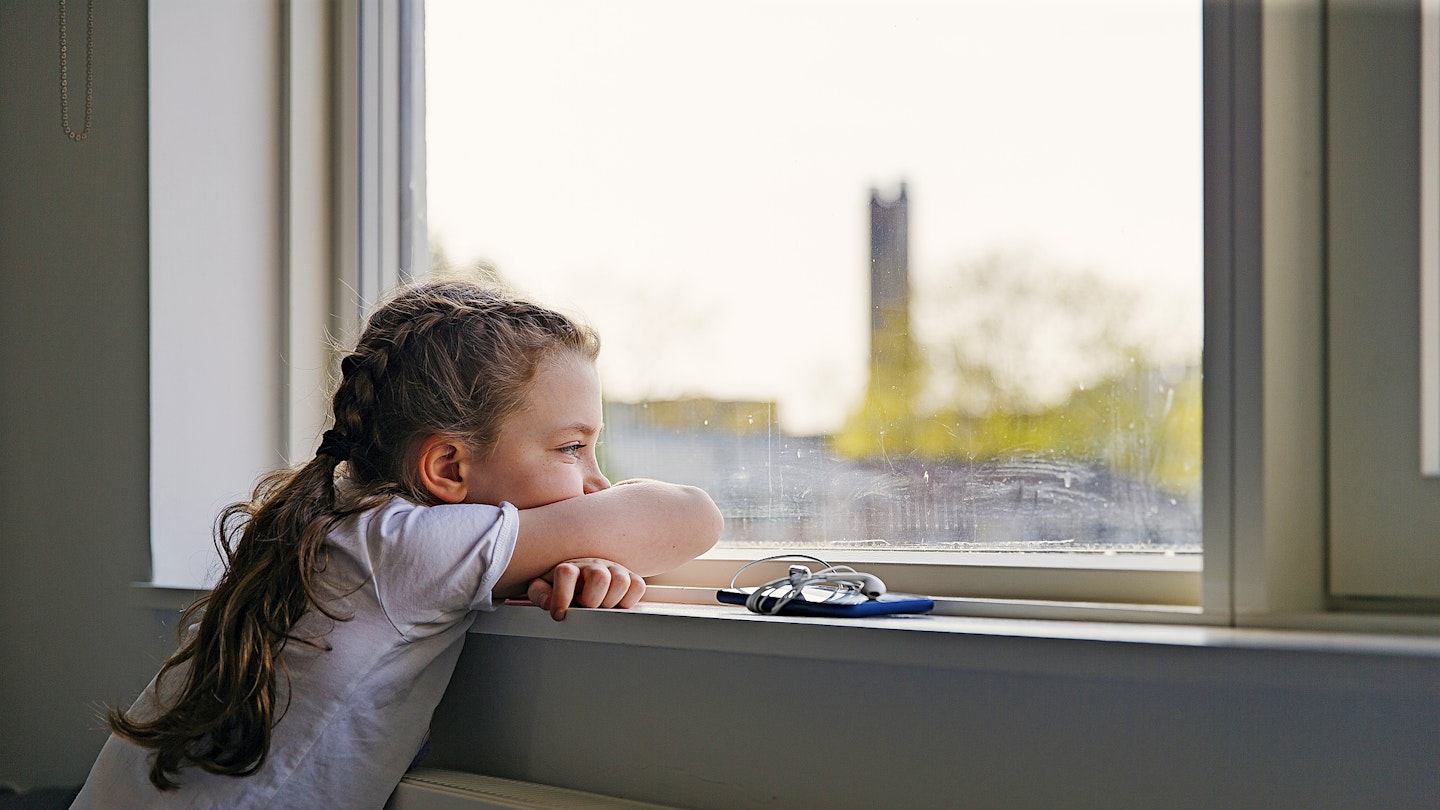Kids have had their lives turned upside down by COVID-19 and many are still struggling. Here’s how to recognise the signs
One morning you find your eight-year-old sobbing, saying she doesn’t want to go to school. Then, after scrolling through her phone, your teenager stomps angrily to her room.
If you’ve recently noticed a change in your children’s behaviour, you’re not alone.
Since early 2020, kids have been forced to deal with school closures, lack of extracurricular activities and social isolation.
They may also have coped with the illness or deaths of loved ones.
Although children are resilient, experts have warned of an inevitable rise in childhood mental health issues, thanks to the ripple effect of COVID-19 restrictions.
The truth is that many kids struggle to express themselves, and can be adept at masking emotions. They may not want to ‘burden’ you, or they’re embarrassed to admit they’re not coping, so it’s important to recognise the signs.
‘Trauma can affect every aspect of a child’s life, including their relationships, confidence, mood and emotions,’ says care worker Trevor Elliott, 30. He has worked with vulnerable children for 12 years and fostered three disadvantaged teenagers when he was only 25.
He now also runs several Kennedy Elliott care homes in London, and he won an MBE in 2020 for his work.
Here, Trevor explains the main indications of childhood trauma.
CHANGE IN ROUTINE
Perhaps your child has suddenly stopped wanting to attend the sports club they used to love. Alternatively, they may be struggling to switch off at night when they never previously had sleep issues.
SOCIAL ANXIETY
They may have lost their ability to form relationships — if you’re traumatised, that can be a struggle. Closing schools during the pandemic was the worst thing that could have happened, and lots of children forgot how to socialise in lockdown.
The anxiety of reconnecting with peers and continuing with schoolwork after missing so much, could cause distress.
ANGER
Your child may become aggressive or violent. When a child gets angry, they’re showing you what’s wrong.
DISTANT
They may become closed or distant and refuse to engage. Many children, especially teenagers, will lean towards staying in their room on social media or video games.
FEAR
Watching a TV show, your child may suddenly scream or cry out because something’s triggered them. Being at home during lockdowns, kids are more likely to have watched rolling news reports about death rates. On social media, they may have heard confusing and frightening conspiracy theories.
HOW CAN YOU HELP HEAL YOUR CHILD?
Spending time with our children is very important. The key is to be present in their development and their life. Try to listen more than talk, and strive to make your child’s life as fun as possible. With the pandemic, life has become more serious, so make your home life nurturing and happy.
When it comes to overuse of social media and technology, most internet providers allow you to set restrictions and time limits. Structure is important, so create a consistent routine.
You could agree that after your child has done their homework, they can use their phone, but no devices are allowed at the table when you eat together. Then it’s time to wind down and prepare for the next day. It’s all about balance.
With a child who’s lost confidence returning to school or reconnecting with friends, help rebuild their self-esteem. Let them know that they’re not alone in feeling like this, and that even adults get nervous.
If your child suddenly becomes aggressive, try to put yourself in their shoes in the moment before they got angry. If you can identify the trigger, you can find a strategy to ensure that it’s not repeated. You have to be a detective, and the more work you put into helping your child, the better outcome you’ll see.
If your child refuses to engage, remember that they have to come out of their room sometime! When they do emerge, have an action plan —cook their favourite food, turn on their favourite TV show or play a game they love.
Help them realise that you’re there for them, but remember that it’s about baby steps rather than quick-fix solutions.
Edited by Louise Baty
For more information on Trevor’s work, visit kennedyelliott.co.uk
